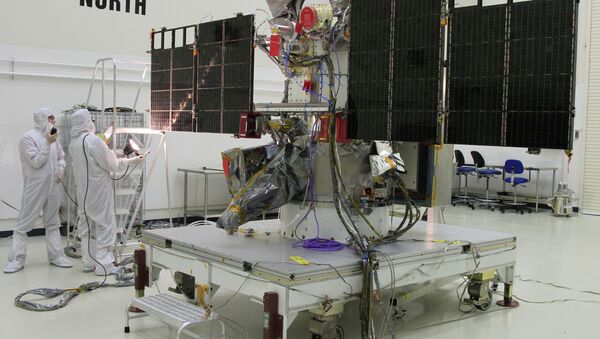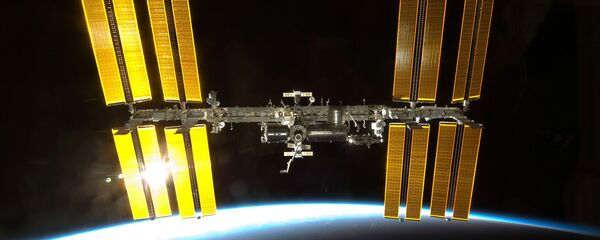DSCOVR is owned and operated by the National Oceanic and Atmospheric Administration (NOAA). The satellite, which launched in 2015, is primarily used for Earth sciences, such as monitoring space weather around our planet.
One of DSCVOR's instruments is the Earth Polychromatic Imaging Camera (EPIC), which images Earth in 10 different channels of light. It began to notice something curious: a series of hundreds of flashes behind Earth. They weren't coming from the sun, because DSCOVR is situated between Earth and its star, and so the flashes became quite the enigma.
The new study from DSCOVR scientists with NASA's Goddard Space Flight Center, who published their findings in Geophysical Research Letters, proposes an answer. Ice crystals have formed hundreds of miles from Earth's surface in the outer atmosphere, and light bouncing off of them is causing the flashes.
"The source of the flashes is definitely not on the ground," Alexander Marshak, DSCOVR deputy project scientist and study lead, said in a statement. "It's definitely ice, and most likely solar reflection off of horizontally oriented particles."
The flashes were first noticed in 1993 by the Galileo spacecraft, whose main mission was to study Jupiter. It briefly turned its gaze to Earth and noticed light over Earth's oceans.
"Large expanses of blue ocean and apparent coastlines are present, and close examination of the images shows a region of [mirror-like] reflection in ocean but not on land," wrote the researchers, a team that included the late celebrity astrophysicist Carl Sagan, in 1993.
Nearly a quarter-century later, DSCOVR found flashes of light over land as well. Marshak said the distinction is more important than it initially seems. "We found quite a few very bright flashes over land as well," Marshak said in the statement. "When I first saw it, I thought maybe there was some water there, or a lake the sun reflects off of. But the glint is pretty big, so it wasn't that."
The flashes detected by Galileo were likely just sunlight bouncing off smooth parts of the ocean. The land flashes, however had to come from somewhere else, leading to the hypothesis that they may still be caused by light bouncing off water – just not water on Earth's surface.
Overall, the researchers detected 866 flashes, and when they cross-referenced them, with the angle of the sun to the Earth to the angle of the satellite to the Earth, they found the data matched. In other words, the satellite only detected the light when it was aligned with the sun's beams.
Marshak is curious as to what this information could mean for future observation of exoplanets. Planets don't give off a lot of light, which makes them difficult to find out in space – but if ice particles like the ones in Earth's atmosphere are a common feature of planets, future telescopes could search for those instead.






